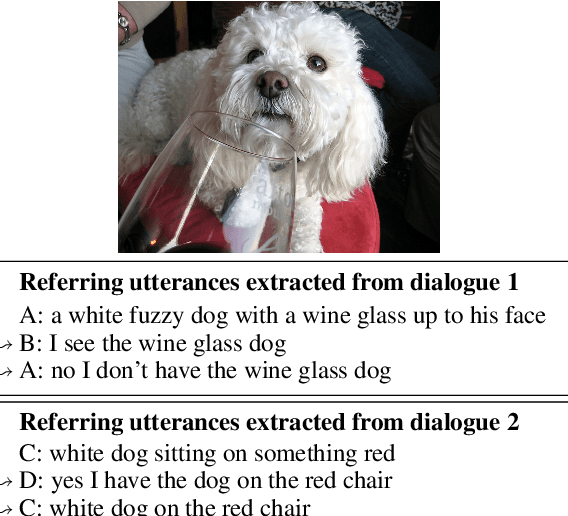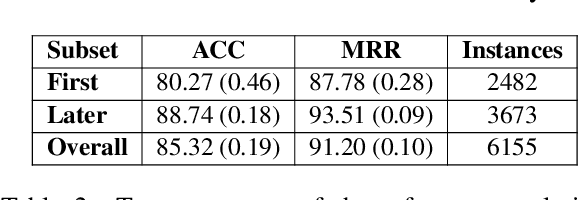Refer, Reuse, Reduce: Generating Subsequent References in Visual and Conversational Contexts
Paper and Code
Nov 09, 2020



Dialogue participants often refer to entities or situations repeatedly within a conversation, which contributes to its cohesiveness. Subsequent references exploit the common ground accumulated by the interlocutors and hence have several interesting properties, namely, they tend to be shorter and reuse expressions that were effective in previous mentions. In this paper, we tackle the generation of first and subsequent references in visually grounded dialogue. We propose a generation model that produces referring utterances grounded in both the visual and the conversational context. To assess the referring effectiveness of its output, we also implement a reference resolution system. Our experiments and analyses show that the model produces better, more effective referring utterances than a model not grounded in the dialogue context, and generates subsequent references that exhibit linguistic patterns akin to humans.
 Add to Chrome
Add to Chrome Add to Firefox
Add to Firefox Add to Edge
Add to Edge